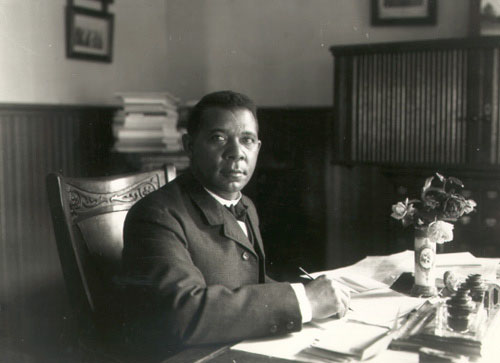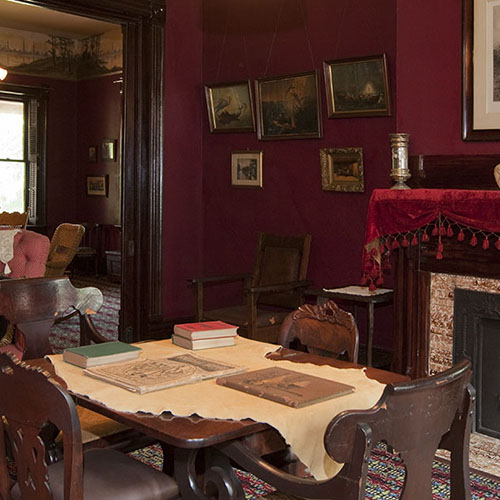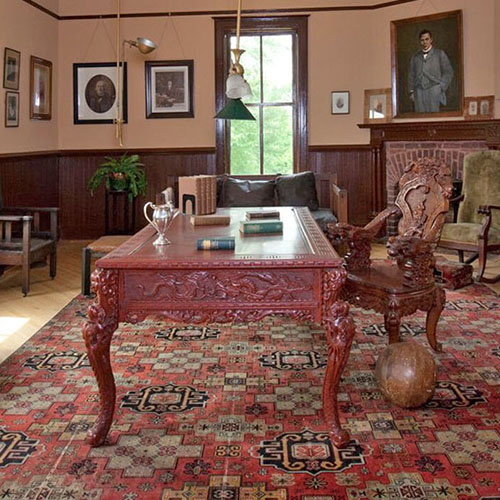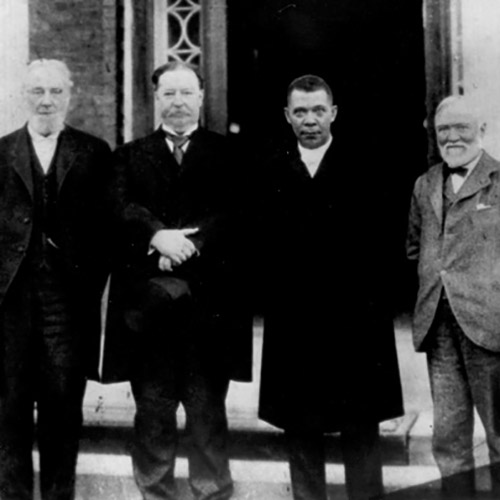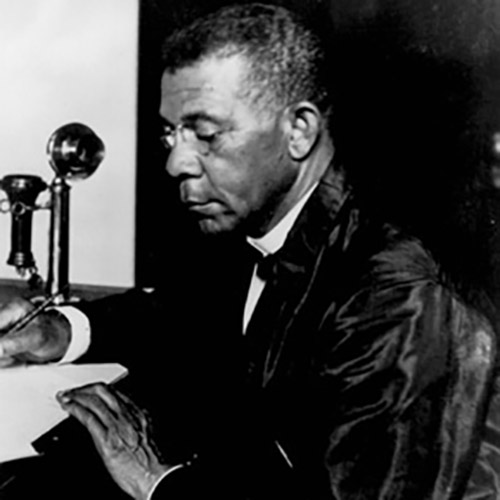The Oaks
The Oaks was Washington's command center and Tuskegee Institute's social center. The Oaks, Washington's home, provided tangible evidence of his success. It was a place of employment and an on-the-job training site for students. African-American educators, businessmen, and farmers were entertained there. Professional staff visited frequently. Faculty members often called on Sunday afternoons but Washington often "cloistered himself in his office on Sunday afternoons, while his wife Margaret was entertaining young faculty members in the parlor."
The Oaks, "a large comfortable home," was built for Washington and his family. They moved into the house in 1900. Washington lived there until his death in 1915. His widow, Margaret, lived at The Oaks until her death in 1925. Most furnishings were made by local craftsmen and students, and were acquired between 1885-1889. The Queen Anne style red brick house, with steam heating and electricity, was the first of its kind in Macon County. The Washingtons visited Europe the year construction began. The friezes in the parlor and library depict highlights of their trip. The house had a parlor, library, dining room, den, kitchen, family and guest rooms, breakfast room, five bathrooms, and veranda. The Oaks sat on three acres of gardens, orchards, and pastures.
Famous people who have visited the OaksTuskegee's 25th anniversary in 1906 brought prominent people to The Oaks, including Secretary of War William Howard Taft, Harvard president Charles W. Eliot, and philanthropist Andrew Carnegie. The Oaks housed a reception for President Theodore Roosevelt and another for the wedding of Washington's daughter, Portia.
After a grueling speaking tour, Washington was hospitalized in New York City. Desparately ill with what some now believe to be kidney failure and with a short time to live, he said, "I was born in the South, I have lived and labored in the South, and I expect to be buried in the South." He insisted on going home. On November 14, 1915, Booker T. Washington died at his beloved Tuskegee Institute.
